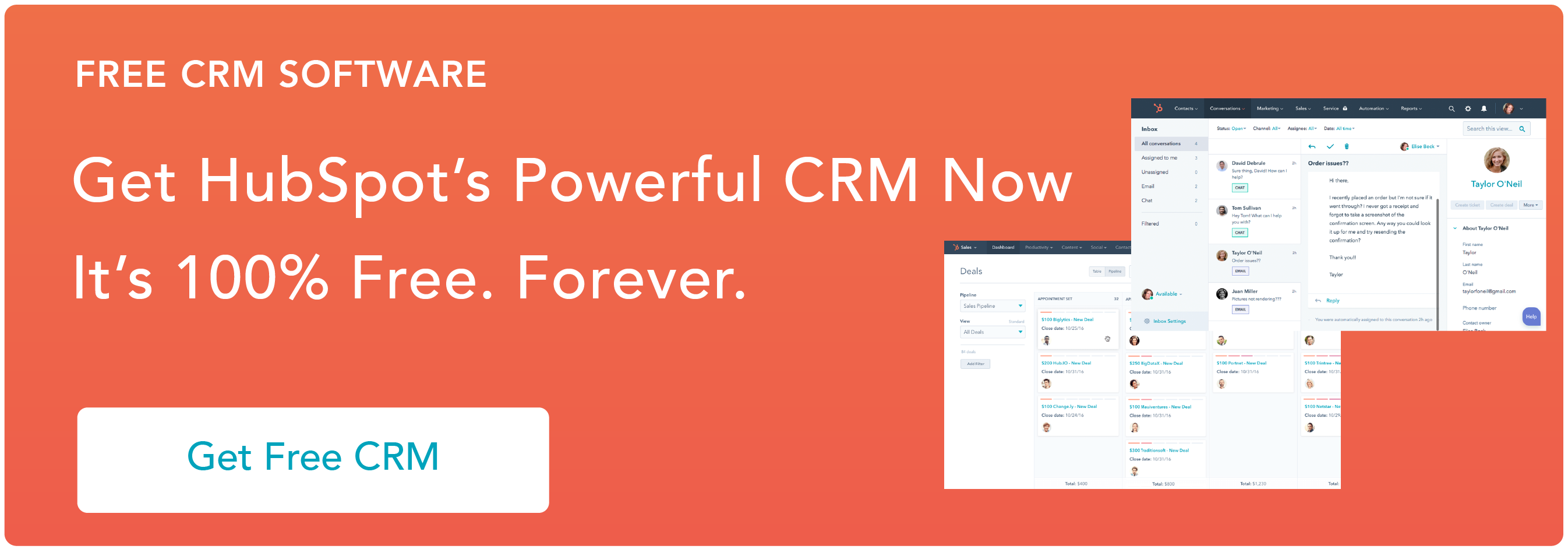Did you know that the customer relationship management (CRM) market is expected to grow to $ 48.8 billion globally in 2024?
CRMs are powerful tools that help you expedite business growth while eliminating friction, improving cross-team collaboration, managing your contact records, syncing data, automating daily tasks, and more.
Keep reading to learn more about why CRMs are important and beneficial for businesses like yours.
Why CRM is Important
A customer relationship management (CRM) system collects, organizes, and manages all of your customer-related information so you can track the buyer’s journey for every individual you interact with, streamline communication, enhance the customer experience, and improve data management.
Our 2022 Sales Strategy and Trends Survey asked salespeople why they use a CRM and how it benefits them. Results showed that high-performing salespeople are more likely than salespeople who underperformed or didn’t meet their goals in 2022 to say that their CRM was very important to their sales process.
When it comes to using a CRM, salespeople report that the biggest benefits are keeping track of leads, using the CRM as a centralized database, improving customer retention, and helping to share data across their organization.

Let’s go more in-depth into some of the reasons why your company needs a CRM to grow better.
Importance of a CRM
We've used HubSpot as an example throughout each of the following sections to offer insight into different use cases for this type of system.
1. Center business growth around your customers.
When your business enters the phase of rapid growth, it can be easy for valuable leads to fall through the cracks — after all, friction is a natural result of business growth.
But an all-in-one CRM platform like HubSpot can eliminate that friction because it's built with your customers and the customer experience in mind — in fact, it centers everything you do around your customers.
HubSpot allows you to architect your business as it appears to your customer and audience. The CRM aligns all of the work your sales, marketing, and service teams do with a variety of natively built tools and integrations — this makes it easy for you all to collectively center business goals and daily work around your customers.
2. Align your sales, marketing, and service teams.
Cross-team alignment is integral to the success of your business. This alignment — specifically, the alignment between sales and marketing — helps your team streamline all stages of the buyer's journey.
In doing so, internal teams can share critical data and customer information so they can work as a cohesive unit. As a result, customers will have a seamless and consistent end-to-end customer experience that makes them want to remain loyal to your brand.
HubSpot makes this alignment simple because the platform comes with natively built tools and features — including Sales Hub, Marketing Hub, Service Hub, and Content Hub — plus a library of integrations.
45% of salespeople said that sales and marketing alignment became more important for them from 2021 to 2022, and 79% of sales professionals say that their CRM is moderately to extremely effective at improving that alignment.

3. Sync and share data with ease.
CRMs like HubSpot streamline time-consuming tasks like data syncing and sharing — manually updating your contact records is a thing of the past. No matter who speaks with a contact (e.g., a sales rep, and service rep, or a marketer), contact records and data are immediately synced and updated in the system for you.
By syncing all of your data and every interaction between your team and a customer, your team will have access to accurate records that you can easily be share from within the platform. This makes your CRM a source of truth when it comes to your data — and as a result, your team can create personalized customer experiences with ease.
So, what other tasks can a CRM platform like HubSpot automate?
4. Automate daily tasks.
CRMs automate other day-to-day tasks, speeding up your time-consuming but necessary work. CRM automation may include data entry and contact record updates after every interaction, as mentioned above, as well as:
- Follow-up communication
- Email sequences
- Sales workflows (e.g., unenrollment trigger workflows, deal workflows, quote workflows)
- Chatbot conversations
- Lead-to-rep assignment
- Lead nurturing campaign
- Campaign analytics
Check out HubSpot's Sales Automation and Marketing Automation tools.
5. Create workflows.
We just mentioned workflows but let's talk more about them — the best CRM systems offer workflows. Workflows complete and organize sales, marketing, and service processes to save you time.
Set criteria that automatically enroll records and takes actions of your choice (e.g. related to your contact records, deals, companies, quotes, or tickets).
With HubSpot (depending on which CRM plan you have) you can create workflows for:
- Contacts
- Companies
- Deals
- Quotes
- Tickets
- Custom objects
Take this free course on understanding workflows in HubSpot.
5. Simplify customer interactions.
Today, there are many ways to reach and engage leads and customers online such as live chat, email, video call, and social media.
CRM solutions like HubSpot have evolved to meet the challenges of customer-facing teams and reps — they integrate with a wide variety of other services and channels through which your leads and customers engage with your business.
For instance, HubSpot has:
- Call tracking to prioritize, place, and record calls from the CRM and then log those calls with the associated contact record.
- Live chat and a chatbot builder to handle queries and FAQs.
- Email tracking to tell you when leads open emails, automate email marketing campaigns, and send well-timed sales follow-up messages.
- Social media management tools to monitor brand mentions, comments, and questions on social media and then respond directly from within HubSpot.
- Video integrations, like Vidayrd, to send memorable and personalized sales and marketing videos and track engagement.
7. Build custom dashboards and report on the metrics that matter to your business.
CRMs make reporting on and analyzing your processes and pipeline simple. The reporting features within a CRM can be customized — such as your dashboards — to help you analyze the metrics that matter most to you. This allows you to identify areas of opportunity and growth to create better customer experiences.
With a CRM like HubSpot, create custom dashboards and reports or select from one of the pre-made templates to save you time. Preview those reports in real-time, visualize your CRM data any way you'd like, and share reports with ease by sending individual reports to your team members' email addresses, or automate your reporting emails so they're sent daily, weekly, or monthly.
Grow Better With a CRM
A CRM has the power to supercharge your flywheel — now that you understand the importance of a CRM, choose the right system for your team to start growing better.
Editor's note: This post was originally published in January, 2020 and has been updated for comprehensiveness.











